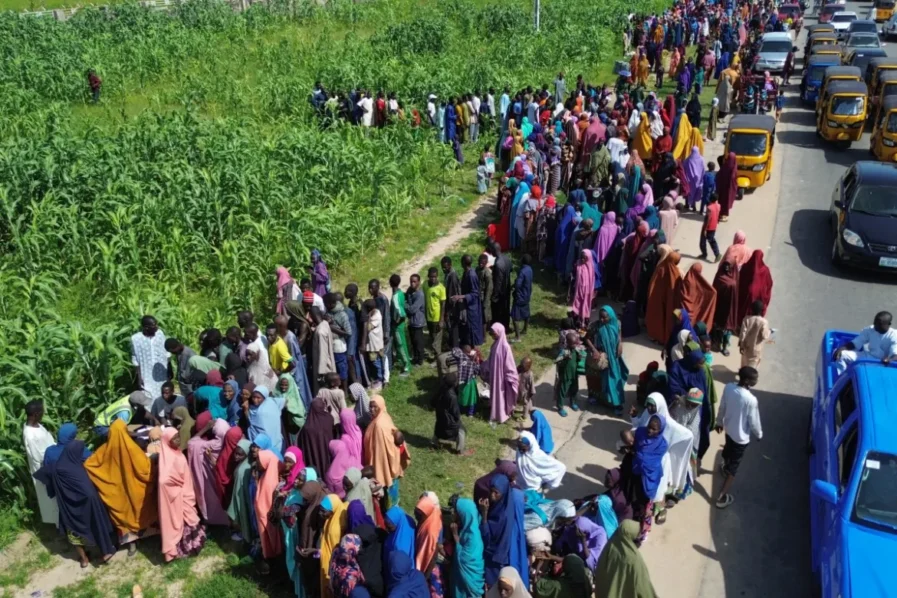
SIR: The sun dipped below the horizon, casting a warm glow over the city of Maiduguri, but for many residents, the fading light brought little comfort. The recent floods that swept through the region have left thousands displaced, their lives turned upside down in a matter of hours. As the waters receded, the true impact of the disaster began to unfold, revealing a tapestry of human resilience, loss, and hope.
Aisha recounts the harrowing night when the floodwaters surged into her neighborhood. “I remember the sound of the rushing water, like a roaring beast. We grabbed the children and ran, but the water was already at our ankles. We had to climb onto the roof of our house to escape.”
Now, in the camp, Aisha struggles to provide for her children. “We rely on aid, but it’s never enough. I worry about their health, their education. I want them to have a future, but how can I give them that when I have nothing?”
At just 12 years old, Mohammed has already faced more challenges than many adults. He was separated from his family during the flood and spent two days alone, clinging to a tree for safety. “I was scared,” he recalls, his voice barely above a whisper.
“I thought I would die.” After being rescued, Mohammed was reunited with his family at the camp. “I’m happy to be with them again, but I miss my home. I want to go back to school and play football with my friends,” he says, a flicker of determination in his eyes. Despite the trauma, Mohammed has taken it upon himself to help others in the camp.
“I help the younger kids with their homework. I want to be a teacher one day,” he declares, embodying the resilience that defines many of the displaced.
Fatima, a community leader in her late 40s, has taken on the role of a caretaker for the displaced families in the camp. “We are all in this together,” she says, her voice steady. “We have lost so much, but we must support one another. I organise food distributions and help families find shelter.”
Fatima’s home was also destroyed, but she refuses to let despair take hold. “We are survivors. We will rebuild our lives, but we need help. The government and NGOs must do more to support us,” she urges, her eyes shining with determination.
She emphasises the importance of community in times of crisis. “We share what little we have. We cook together, we pray together. Local NGOs are calling for increased government intervention and international aid to address the needs of the displaced. “We need shelter, food, medical care, and education for our children,” Fatima implores.
“Without these, we cannot rebuild our lives.”The floods have not only displaced families but have also exacerbated existing vulnerabilities in Maiduguri, a city already grappling with the effects of conflict and economic instability.
The voices of the displaced are a reminder of the urgent need for comprehensive disaster management strategies and community resilience programmes. In the face of adversity, the people of Maiduguri stand united, ready to rebuild their lives and reclaim their future. The journey ahead may be long, but together, they will rise from the waters that sought to drown their hopes.
Bintu Umaru Ibrahim wrote from the Department of Mass Communication, Borno State University, Maiduguri.






